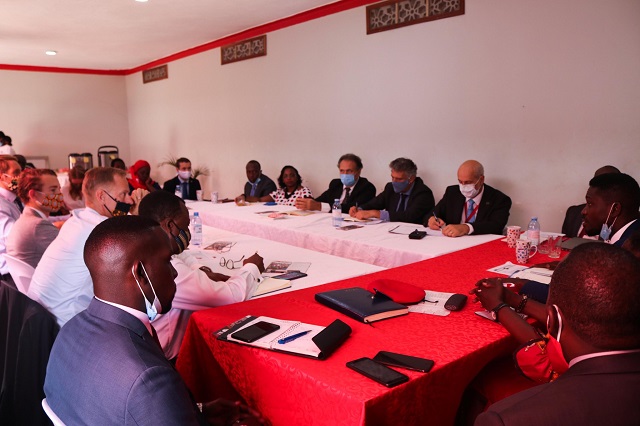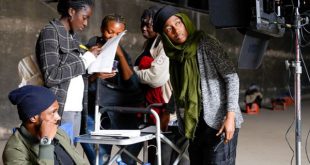
Bobi Wine a hot issue
Matters surrounding Bobi Wine appear to be Byabakama’s hottest issue. That is partly because polls have Bobi Wine as the leading challenger to President Museveni in the 2021 elections. Since Bobi Wine unveiled NUP, the party has been attracting throngs of candidates registering to run on its platform. Up to 20 incumbent MPs have ditched their old parties to join Bobi Wine.
Just two years in the political arena, Bobi Wine, has proved to be popular with voters partly because of his profile as a local music superstar. He has won a few contests against established politicians and Museveni appears jittery because Bobi Wine represents a new, undefined threat.
Byabakama has said he is looking into a petition he received on Aug.09 challenging how Bobi Wine became president and presidential flag bearer of NUP. He has said he would not have allowed it had he known that the officials of the party previously called National Unity Reconciliation and Development Party (NURDP) who applied to change the name from NURDP to NUP were not authorised to do so by the party members.
Byabakama said that when then party president, Moses Kibalama Nkonge wrote to them last year, changing the National Unity Reconciliation and Development Party (NURDP) to National Unity Platform (NUP), they had no reason to suspect he did not have the authorisation of the party members.
“For us when we sanctioned the change of the name, we did not have any information that these people who had proposed change of name had not been authorised to do so. We did not have that on authority. We did not have that information that they are not authorised, they are not allowed to request for change of a name. That information came much later after the name had been changed,” Byabakama says.
The question is what is the procedure for changing a party name at the EC? There must be clearly stipulated guidelines. Did Kibalama Nkonge meet those guidelines? If yes, the EC role would be clear.
Some people have written to the EC saying they are NURDP members querying the manner in which the name and the leadership of their party changed. They cast doubt on an Extraordinary NURDP Delegates Conference said to have been held on July 14, 2020, and attended by only 51 unverified members out of a listed 400 delegates.
It was at this conference that Bobi Wine was unveiled as president of the party under a new name together with other office bearers.
The petitioners say the new office bearers were named without conducting a proper election and in violation of the party’s constitution and provisions in the national constitution on internal democracy of political parties. Clearly, this is a case of internal controversies within NUP.
Byabakama’s promise to the petitioners that the EC legal department is looking into whether the commission has any remedies for the petitioners to seek redress could suck the EC into NUP’s internal wrangles.
“We’re going to look at the petition challenging the change of leadership,” Byabakama says, “If the commission has the powers to address it, we shall address it. If the authority to address that matter is beyond us, we shall advise whoever has petitioned us where to go. We shall look at the petition looking at the leadership of Mr honourable Kyagulanyi of that party.”
According to legal experts, Byabakama could be attempting to act under powers bestowed on the Commission by Article 15 of the Electoral Commission Act 1997 which deals with “Power of the commission to resolve complaints; appeals”.
Under that law, the EC is empowered to handle any complaint submitted to it concerning the electoral process at any stage. The article mentions that a lower level of authority could have examined the petition to establish if an irregularity indeed happened. Significantly, however, the law says anyone who disagrees with the Commission’s decision can appeal to the High Court. The High Court is given powers as the final arbiter to override the Commission. But the law also outlines a long and convoluted legal process that sucks in the Chief Justice and the Attorney General. It is a time stretching process likely to cause postponement of an election.
Recognising the time-bound nature of an election, the law says the High Court shall proceed to hear and determine an appeal under this section as expeditiously as possible and may, for that purpose, suspend any other matter pending before it.
 The Independent Uganda: You get the Truth we Pay the Price
The Independent Uganda: You get the Truth we Pay the Price



The decision to let Besigye run for president was a blessing in disguise for the incumbent – a tactical showo of democracy and a wise move for the incumbent but blindfolding to naive people who thought it was not stage managed.